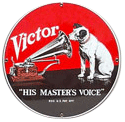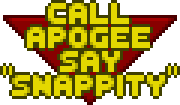|
babyeatingpsychopath posted:An acronym for Non-Uniform Rational B-Spline. So NURBS is correct. A way to connect points so that they're all connected by a continuous curve, and each point has a handle so you can change the shape of the curve and everything remains smooth. Complicated math that computers love. Yo! There's the acronym! I'm I can never remember it. All I recall about working with NURBS is how astonishingly similar they are to working in vectors in 2d. Same little handles, same fussiness, same kind of deal regarding size. I'm mostly a 2d guy, though I've trained in 3d. Not kept up that training, though.
|
|
|
|

|
| # ? Apr 19, 2024 23:48 |
|
I like legos. People get butthurt when you call them legos instead of Lego. The company itself doesn't like it because it helps them protect their copyrights. Lego also insists on calling the pieces elements, btw. There is a fan made nomenclature of each type of piece that is far more elaborate and thorough than Lego's own internal vocabulary. A brick is three times the height of a plate. A tile has no nubs on top. We call the nubs studs, btw. There's headlight bricks, 1 x 1 modified tiles with clips, jumper plates, 1 x 2 technic bricks with axle holes, etc., etc., etc. As an AFOL, adult fan of Lego, I sometimes make MOCs, my own creations. Some of them use SNOT, studs not on top, building techniques. Sometimes I'll even use the 'illegal building techniques' described in a document that leaked from inside Lego. I dislike BURPs and LURPS, big and little ugly rock pieces, respectively. There's a poo poo load more. If you are keen, come join us in the lego thread. https://forums.somethingawful.com/showthread.php?threadid=3328496 Or look around on the most popular secondary market, Bricklink https://www.bricklink.com/catalogTree.asp?itemType=P
|
|
|
|
All that talk on tilting and no talk of don quixote "tilting at windmills" in year 1605? Attacking imaginary enemies. Glossary of American Jobsite Slang/construction slang https://www.theunionbootpro.com/slang/ I haven't heard all of these in the wild and some are regional and or problematic.
|
|
|
|
canyoneer posted:Climbing has one. Unsurprisingly there's some crossover and similarities between climbing and whitewater and river running jargon. Bro sports are just rife with jargon. We use a lot of biners, BFR/BFTs, beta, boils. Domer - boulder that's mostly round on top House rock - rock the size of a house Jump rock - rock that's fun to jump off Tongue - a chute of smooth laminar flowing water that is often found at the top of a rapid, often the point at which most of the flow in the stream is funneled Hole - an area of turbulent water that isn't moving with the rest of the current, usually right below a pourover, domer, or some other feature that creates whitewater and slows it down; usually foamy and a place your boat is very likely to slow way down or submerge to some degree Pourover - rock with water pouring over it Keeper - a recirculating hole at the bottom of a pourover or similar feature; current near the bottom of the hole is actually moving upstream; they're insanely dangerous because if you get stuck in one you'll have a very hard time getting out Strainer - most often a log/tree/snag through which a stream flows Meat - the biggest/most dangerous/most exciting section of a rapid; often where the majority of the flow is Throw rope - a rope you throw for rescue; it's stored in a special bag that makes it easy to throw Park(ed) - to get stuck on top of a rock Pin(ned) - to get stuck up against a rock, usually by the force of water coming from upstream Wrap(ped) - to wrap your boat around a rock; another version of pin(ned) more specific to rubber boats Dump truck - when everybody gets tossed out of the raft because it hit a rock or something Tube suck - when one of the tubes on your raft gets sucked under, maybe because you got pinned/wrapped or because you stuck the tube into an eddy fence Eddy fence - the line at which current from an eddy is moving upstream immediately adjacent to current moving downstream; this can be an area only a foot wide, or bigger, and they create bizarre suction that can swallow a boat in the biggest examples Wave train - a series of standing waves in succession Haystack - a standing wave that's very foamy on top because the flow isn't clean Line - path of travel through a rapid Beater - a boater with poor form, poor etiquette, otherwise just not good at boating and a pain to share the river with Groover - portable toilet Howdy - a beer Ducky - inflatable kayak Oar rig - raft fitted with an oar frame for rowing Swimmer - someone who fell out of a boat Slick (it) - to run a rapid without hitting rocks, getting turned around, or otherwise making mistakes It just goes on and on and there's even more in whitewater kayaking.
|
|
|
|
Film has loads of these. Honestly I would feel like a bit of a fraud talking at length about much of it - I'm still trying to break into the industry myself, got union permit status but still waiting for that 'golden first call'. that said, I can elucidate a couple of them. 'Speed', 'Speed Sound' or 'Speeding' - Sort of the audio department's way of indicating they are "rolling," a word which is more specifically for the camera side of things. We say 'speed' as a holdback from the days when sound recordists used magnetic tape, and machines that would take a second to get up to recording speed. 'MOS' - Sometimes a nice thing to hear as sound dept, because it means the shot requires no recorded sound. Literally an acronym for 'Mit Out Sound', because apparently some German director used to yell that a lot. Maybe my all-time-favourite piece of set lingo, though, usually used by props/set dec departments, is 'Greeking.' It's the process of hiding or obscuring corporate trademarks that haven't been cleared for use. Like when a character is drinking a beer, and the logo on the bottle is always somehow facing away from the camera. This isn't really that funny on its own, unless you know that 'Greek' is also generally a slang term for anal sex. Theatre, film and musical production share a lot of terms because a lot of the same gear is used. What's weird is when the same shorthand slang word means something totally different. I've worked in recording studios and on stages more than I've been involved in film, and it always throws me when in either case I hear the term "go-bo." It's short for "go-between," but in theatre or film it's a gel or screen for a light, and in audio recording it's a large insulated baffle to increase isolation between instruments or musicians. Other than this, unfortunately most of the recording studio lexicon is pretty unimaginative; either straight-up clinical terms or shortened names for devices like microphones - everybody knows what a "fifty-eight" microphone is, for example (it's the one you see almost everyone ever singing into onstage). OK, here's an important one for which I'm kind of a stickler: 'Gain Staging' or 'Gain Structure' - This is just the practice of setting optimum throughput volume for each audio device in a chain. The idea is that every piece of a signal path can impart noise and distortion; the former usually happens when the signal flowing through it is too quiet (too close to the noise floor) and the latter when the signal is too loud. By ensuring that there's no unnecessary attenuation or amplification going on, you're minimizing both noise and distortion in the chain. Some manufacturers even have a handy indicator for where it is on a fader or knob, usually called 'Unity Gain'. Seeing this done properly in a digital environment is a good way to identify a 'real head', because with the advent of 32-bit floating point architecture it's almost unnecessary - until it suddenly isn't. Really, the service industry is where most of my experience is.  I could go on for a while about these terms but I hate the service industry. I could go on for a while about these terms but I hate the service industry.That and DJing, I guess. Guys who scratch have all sorts of terms for different techniques, but the rest of the lingo is very straightforward because most club DJs are idiots who don't know how their gear actually works. Mister Speaker fucked around with this message at 06:57 on Nov 24, 2022 |
|
|
|
Film has a billion antiquated yet still alive terms. I really like "second sticks". The clapboard clicks in front of the camera so the editors know where to sync the sound and video. Sometimes the Assistant Camera claps the slate (another great holdover from when they were just slate chalkboards) before the camera is actually rolling or pointed/focused on the slate, so they'll call out "second sticks" for the editors. When the 2AC can't get in front of the camera at the beginning of the shot (because you're blowing something up or whatever), they'll call "tail slate" or "tails" to let the recordist know to not cut the sound until the slate is clapped. Mister Speaker are you going into the sound dept?
|
|
|
|
theflyingexecutive posted:Film has a billion antiquated yet still alive terms. Even 'Rewind' is a hold over from film and tape. There's nothing to wind on a hard drive or disc. Edit: Also 'color timing.' The term refers to color saturation of an image because the more time you left the film in the developing chemicals the deeper the color. It's all done digitally now. deoju fucked around with this message at 19:32 on Nov 24, 2022 |
|
|
|
theflyingexecutive posted:Mister Speaker are you going into the sound dept? Hopefully yeah. I'll have to start as general labour, but sound is my background and education. I have my own kit (Zoom F8n, Sennheiser MKH416 & MKE600 shotguns, pair of Sennheiser lavs, a Denecke slate and some wireless timecode gear) but haven't used it much because of... idk, not driving, being awful at networking, stuck in the service industry, depression, whatever. "Second sticks" is a neat one, really anything involving the slate/clapboard is funny to me because it's the way audio & camera used to be synchronized, and is kept around to this day as an absolute last resort if all the timecode data somehow disappears.
|
|
|
|
Jaguars! posted:Beer Leg - When surveying with a measuring chain, to set up the theodolite so one tripod leg points directly down a line you're planning to measure. When you try and use the chain, the leg will be in the way and you owe the rest of the crew a beer. Died with measuring chains (i.e. the late 90's) "Drag up," to quit with no notice. I've only heard it in surveying. ("You dragging up?" "Yeah, I'm outta here.")
|
|
|
|
Lots of talk about "killing" (stopping) "children" (programs started by other programs, or more technically, subprocesses) in the computer touching world. I'm trying to not use those terms anymore because non tech people get all bug-eyed about it lol.
|
|
|
|
Reminds me of reading a manual about FreeBSD or something similar as a kid that I understood absolutely none of, except that some software thing called a hunter that called up something else called a reaper that killed children sounded really badass.
|
|
|
|
Cessna posted:"Drag up," to quit with no notice. I've only heard it in surveying. What I've learned from surveying Reddit and editing Wikipedia is that surveying in the US uses a so many different terms that I probably couldn't even start a job there without spending a couple of days learning all the jargon. My other favourite terms are Lockspit (A boundary peg that has trenches next to it pointing where the boundaries go) and Vinculum (Similar to an integral symbol, it indicates that two bits of land belong to the same title, e.g when a road was laid out across it.)
|
|
|
|
Woolie Wool posted:Reminds me of reading a manual about FreeBSD or something similar as a kid that I understood absolutely none of, except that some software thing called a hunter that called up something else called a reaper that killed children sounded really badass. Yeah, some of the old terms in early compsci/eng like that, and, eg "daemon" (aka servers, basically), feel quaint in their edgelordyness nowadays. And then you get poo poo like master/slave* (which only greybeards still cling to, ime), and whitelist/blacklist** (where the debate is still heated in some circles), which I think are both really awful. *: Replaced by primary/secondary mostly in cases where you're talking about having extra computers to fall over to in case one fails; and replaced by primary/replica when you're talking about duplicated data stores, like databases and such. **: Replaced mostly by allowlist/blocklist respectively, and that's the tell why I think they're awful.
|
|
|
|
yeah i've heard that the term "master" is being phased out in the computer world and there is a movement to phase it out in the academic world (e.g. "masters degrees") but i work in the music world i've not yet heard of anyone wanting an alternate term for a master tape or mastering a record. i guess "primary" could work, sort of
|
|
|
|
Master/Slave nomenclature is also used in timecode applications and MIDI. We should change it to Dom/Sub.
|
|
|
|
Controller and subject Sender and receiver Host and client Custodian and dependent Signaler and client Timekeeper Relay Itís not hard, m/s as terminology are not that specific in deployment across technologies and nothing uniquely information dense is lost by changing it, rather more precise and accessible terminology can be a better signal.
|
|
|
|
In terms of music, final, universal, amalgamate, authoritative all seem like just as good a fit for what its used for in various spaces. Chaperone of Ceremonies(CC) Lyte
|
|
|
|
Space Kablooey posted:Yeah, some of the old terms in early compsci/eng like that, and, eg "daemon" (aka servers, basically), feel quaint in their edgelordyness nowadays. The term was inspired by Maxwell's Demon, so that part was originally more nerdiness than edgelordyness.
|
|
|
|
Master and slave cylinders is still the nomenclature for brakes and clutches in the automotive world, and I don't really understand why we haven't switched to prinary/secondary yet.
|
|
|
|
ALPHA CYLINDER Beta cuck cylinder Also primary/secondary/tertiary makes sense to me. The thing about M/S drives in computers confused me because they weren't even interacting with each other so the terms didn't even make sense. Primary and secondary are more accurate with IDE CD drives than what we had.
|
|
|
|
Mister Speaker posted:I'm still trying to break into the industry myself, got union permit status but still waiting for that 'golden first call'. Hey bud, what union are you trying to get into? And where are you located? I'm an active IATSE card holder. I have about 12 years in my current local. Mister Speaker posted:
I work mostly stage, think Broadway, and stage broadcast, like ESPN Honors or Final Four kind of stuff. I've always heard GoBo as Goes Before Optics, and is typically a cut piece of steel to shape the beam into an image. Sometimes you get real fancy glass gobos with embedded color. I've never heard of gobos in the audio world, my head audio will call for the "baffles" when we are loading trucks etc. That being said I'm mostly a carpenter. We have some of our own, often problematic, sets of terminology. I will often call for one my assitants to "hang the blacks" which is literally hanging black legs and borders. We're trying to get away from this, but it differentiates between what are normally house soft goods vs. show specific. We definitely still use master/slave in regards to cuing, particularly with automation, although more recently we've been moving towards parent/child. With Automation, you also "stab" the "knives" into the "dogs". The knives typically being T shaped flat stock that locks a set piece into the dog, which is the carrier for it attached to the aircraft cable in the auto deck. I'm sure there's tons more but being so ingrained as part of my life sometimes it's hard to realize what other people don't say.
|
|
|
|
Another IATSE member here (not currently, made a lateral move). My experience is mostly in feature film production and commercials in the US. Here's a few I'm commonly asked about by people who stick around for the credits. Gaffer: Chief lighting technician. Runs the lighting/electric team responsible for setting all lights and running power to set. Best Electric: Second in command of the lighting/electric team. (Historically called Best Boy, still is sometimes. I've also worked with women in the role who preferred Best Girl, and some who preferred Best Boy, but most people just say Best now) Electricians: lighting crew. Sometimes called Lamp Operators, Juicers, Sparks. Key Grip: Chief of the Grip department. Also has a Best Grip second in command. Key Grip and Gaffer are equals in the org chart, both under the command of the Director of Photography. Key Grip is often also looked to as the set Safety Officer. Grip: Member of the team that takes care of camera mounting/moving and casts shadows from lights the electric team sets. Any time a light (including the sun) needs to be modified in color, spread, or hardness that's a Grip job. Any time the camera moves in a shot or is mounted on anything that's not a basic tripod, that's a Grip job. Swing: a person who is doing both a Grip and Electric job. Usually only seen on smaller shoots. A lot of this jargon is used in the UK too, but the roles and responsibilities change a bit. There's also a massive (possibly infinite) list of Jargon for specific pieces of equipment or common tasks on film sets. It's obviously easier and quicker to say "I need a Baby on a Turtle with a Homerun and Top it with a Floppy" than it is to say "I need a 1000 watt light with a fresnel lens mounted on the lowest-height light stand, with two double-scrims, (metal screens that lower the intensity of light by a full F/stop [the number rating for the size of the apeture behind the lens of a camera that allows light to fall on the sensor/film plane]) and then bring in a stand with 48" square duvetyne frame with a hanging extra length of duvetyne, and use it to cast a shadow to prevent the light from spilling up into the background." There's an episode of American Dad where the alien guy gets a job as a Gaffer and walks around spouting the lingo. It's pretty hilarious. "jellyroll that half apple" isn't something I would know how to do, (put color gels on a wooden box??) but it sounds right.
|
|
|
|
Ironhead posted:Hey bud, what union are you trying to get into? And where are you located? I'm an active IATSE card holder. I have about 12 years in my current local. 873 (Toronto film union). I've got a small bit of experience in 58 (stagehand union), and an educational background in sound, but only a little on-set experience. Got like three references inside the union as well. My permit status was approved in September and I've been keying in Available on the website pretty often, but there must not be much work right now. 
|
|
|
|
Cessna posted:"Drag up," to quit with no notice. I've only heard it in surveying. this is used in construction as well, at least in the electricians local im familiar with
|
|
|
|
White Label manufacturing - where a private manufacturer has a standard product specification and will sell you the right to basically stick your name on the product, while they handle everything else. For example, the same set of factories can make the same generic store brand soda for every big box store out there. The companies basically only own their names and the manufacturer does everything else. At the same time, that factory might have a different, Private Label agreement with a particular company for a special version of the product (for instance, Coca Cola). CFR - Code of Federal Regulations, the body of federal regulatory and administrative law. These are the rules passed by federal agencies like, e.g., the Federal Trade Commission, based on authority given them by Congress. If Congress tells the FTC "hey you now have to enforce fair standards in home loans", FTC will have to write rules about how they'll define "fair standards" and what they're going to do to enforce them. USC - United States Code: actual federal law, the body of stuff passed and amended by Congress. Note that citations in individual bills and in the USC often don't match, and a lot of bills work by changing existing parts of the code which are referred to as individual laws. Title - the highest organization level of federal laws and regulations. These match between the CFR and USC. For example, Title 12 is about banking law in the USC and for bank regulations in the CFR. FR - Federal Register, the place where almost all federal regulatory and rulemaking occurs. Updated daily and often multiple times during the day. This thing looks boring, but the fact that it's public and transparent and accurate to what the government does is one of the things that sets the US apart from a lot of other worse countries. Only the EU has a comparably complete record. PI - Public Inspection, the place stuff for the FR goes before it's formally published, usually a day in advance. Incredibly useful for getting early information, but many regulations go into effect based on X days after they're formally published, so you have to be careful with those. Notice and Comment - Before a regulation is issued, federal agencies usually have to give a notice of what the rule is going to be, and get public comments, then respond to all of the comments that are on topic. The agency usually issues an NPRM - Notice of Proposed Rulemaking, which gives the draft and asks for comments, then after a set comment period, they answer all comments and usually issue a Final Rule. The specifics of what's required are complicated and based on a bunch of laws (many intended to slow down and hamper regulation). ANPRM - Advance Notice of Proposed Rulemaking. When an agency is still trying to figure out how or whether to do something, they issue an ANPRM with questions for the public or an outline of what they're planning. CP - Citizen Petition. Want to force an agency to do something, explain why they won't do something, or just answer your question? Depending on which agency and other factors, you may be able to send them a formal petition that basically obligates them to give you an answer on the record. IRM - Internal Revenue Manuals. The IRS's internal documents on how basically everyone does every part of their jobs. Probably one of the most stereotypically bureaucratic documents out there. The public version has a lot of stuff censored. Information Collection - One of those things designed to strangle federal regulations. Many agencies have to constantly re-measure any information they require as a part of regulations and evaluate how much it costs regulated people and companies to comply. This all shows up in the FR and it's largely irrelevant, it just makes the agency have to spend a lot of time re-justifying the cost of every single regulation they enforce. 12866 Review - another obstacle to regulations. Bill Clinton signed this in the 90s; basically all significant agency regulations have to go through review at the White House's Office of Information and Regulatory Affairs before they're published. This is mostly rubberstamping, but it adds delay and if the white house is badly staffed or incompetent (see: Donald Trump) the delay can get severe. Discendo Vox fucked around with this message at 05:19 on Dec 27, 2022 |
|
|
|

|
| # ? Apr 19, 2024 23:48 |
|
Tight 5
|
|
|




























